Marc Emory | Interview | A rare folk album from 1974 gets a deserved reissue
Marc Emory recorded a very rare folk album in 1974-75. The original record was a private pressing of 200 copies.
Scissor Tail Records recently reissued this rare gem in solo guitar. Marc Emory has been living in Germany with his wife for many years. He’s still making music, just not as the lonely college student he once was.
It’s really great to have you, I’m excited to discuss your records. Let’s start at the beginning. Would you like to talk a bit about your background?
Marc Emory: I was born in Alexandria, Virginia in 1952. In 1950, my father had accepted an experimental position as a one man Washington correspondent bureau for a newspaper in Watertown, New York. That is on the Saint Lawrence Seaway, across the border from Canada. His “beat,” as it is called, was anything going on in Washington affecting the area, including ANY Great Lakes state. There are military bases near there, so funding for projects bringing jobs to the area was of major interest, and having someone right there in constant contact with New York’s Senators and Congressmen was considered a step up for a small newspaper from a “one horse town” like Watertown. In college, he had participated in musical productions, but his parents had always been involved in politics, so his interest tended in that direction. Washington was like a jolt of energy to him, and he was in his element ever since.
My mother came from a working class family in Manhattan, but she was always very musical. She played piano and cello, and majored in classical music in college. She had a literary bent as well, but only pursued that in order to make a living after college. I was always fascinated by her ability to make music come out of the piano she had installed in our house in Virginia, and, as a small child, wondered at her ability to make those keys produce music where all I could do was to pound on the keys and make noise. I expressed an interest in knowing the big secret, and she got me started on piano lessons before I was ten. I picked it up, but was slow at sight reading, and so did a lot of self-teaching. When I was 12, the Beatles came along, and suddenly it was all guitar, although I liked playing bass as well. Then came the Doors, and suddenly it was cool to play keyboards again, and I found that playing bass on one keyboard with my left hand, and organ on another keyboard with my right hand was not an “illegal” combination. At age 18, I joined the University of Pennsylvania Balalaika Orchestra, since I had always found Russian Folk Music captivating, and then at age 19, my brother gave me the Leo Kottke “Armadillo” album. When I heard that, I got one of those legendary “so this is what my life has been leading up to” moments.
In 1975, I joined a company of barely twenty somethings after getting out of college, which let me combine various hobbies: languages, old coins and music. I had always been interested in old coins since I was little, and when my dad went to Russia in 1959 and brought back postcards with letters I couldn’t read, I was hooked on learning foreign languages. The job also involved a lot of travel. On our first extended trip to Southern California, I took half a day off, rented a car, and drove down to Escondido to look for the studio of Božo Podunavac, the famous builder of Leo Kottke’s guitars. I had him build me about ten different ones over the years, and I still have them all. Some are unique.
How did you first get interested in music?
As my mom was involved in orchestras locally, I always heard music. Being in Virginia, I heard country on some radio stations, but my dad always brought home records he thought were interesting. This ranged from Elvis Presley to Harry Belafonte to Johnny Horton–also parody, such as Stan Freberg’s savage parody of Lawrence Welk (Wun’erful, wun’erful). I soaked it all in. At age 15, I got involved in a “progressive” rock band in the Washington, DC area with the “oddball” name of The Clockwork Orange. This was years before the film came out, and people always wondered where in the world we came up with a crazy name like that. One time, an older friend had built the sound system for the short-lived D.C. version of the Fillmore East. It was called the Ambassador Theater. One day, after spending the day at his place in Washington, he asked if we had time to go to the Ambassador so he could do a sound check for the show that night. None of us were in a hurry, so we said OK. It was in a not-so-safe part of town, so he told us to bring our instruments in with us. So we set up and played a few numbers to help him with his sound check. There was nobody there, but hey, we could say that we played the Ambassador! Well, in that big hall and his sound system, we sounded fabulous, until some guy showed up and asked who in the world we might be? We said we were helping the sound system guy do a sound check, and who might he be? He said, “I own this place.” Oh. Oops!! VERY sorry to have disturbed him, we’ll get out of here as soon as we can. He said, no, no, it’s OK. You guys don’t sound half bad. What are you doing tonight? Ummmmm, wellll, as of that second, NOTHING!!
So my teenage band, the Clockwork Orange, got to play at the Ambassador that night AND the next night. We then opened for the original lineup of Canned Heat, Junior Wells and the Chicago Blues Band, and the Youngbloods (man, were THEY ever tight!). But we were underage, and couldn’t do it any longer because we were too young to belong to the Musicians’ Union. It was fun while it lasted.
I loved playing Russian and Balkan music in college with the balalaika orchestra. Later, when I got my hands on a decent 12 string guitar, I started trying to be a Leo Kottke clone, with some moderate success. I got some solo gigs around Philadelphia, where I was in college.
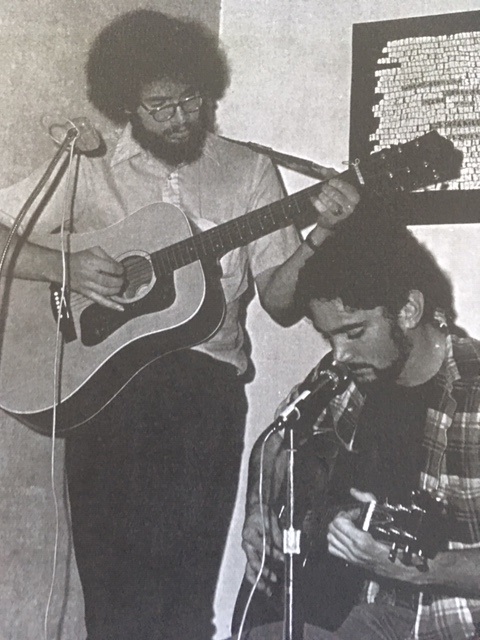
After graduation, I went back to Europe for the summer and met the woman of my dreams. She was my age (22), a beautiful tall German blonde who liked music. I went back that winter (1974) to visit her, and she said there was a folk open mike in town (Münster) one night, and I should bring my guitar (I never left home without it). So I did. Again oops. It was a formal concert by a touring American singer, and I was embarrassed as hell, coming to a concert with my own guitar. But the guy was cool, and he asked if I wanted to play in the intermission. The organizer said, sure why not. So, I did, and suddenly found myself with an invitation to co-headline a folk festival in Germany the next March. Well, I did a few of those, and at one festival, I did one of the proverbial parking lot jams with the fiddler from one of the Dutch groups. Our duets were so popular, he invited me over to Holland to see what more we had in common. He taught me all sorts of fiddle tunes from America and the British Isles, and said he knew a Dutch banjo player, too. Thus, the Holland-America-Line was born. We did a few gigs and tours, but my day job was starting to get serious, and I had to abandon the concerts. Ah, well, that, too, was fun while it lasted. My father, in the meantime, was accepted into the prestigious Gridiron Club of Washington. They are an elite group of DC journalists who put on a big parody roast of DC politics every March (“ladies are always present, and reporters are never present”) for all of DC from the President of the USA on down. That introduced me to the world of political parody, my biggest involvement these days. When my dad was president of the Gridiron Club in 1995, my wife and I flew over for their show. The Gridiron Club president always gets to have his family hang with the President and VP of the USA, and so we got to hang with Bill Clinton and Al Gore. Heady stuff!! I later on got to play for Bill and Hillary after his term in office was done.
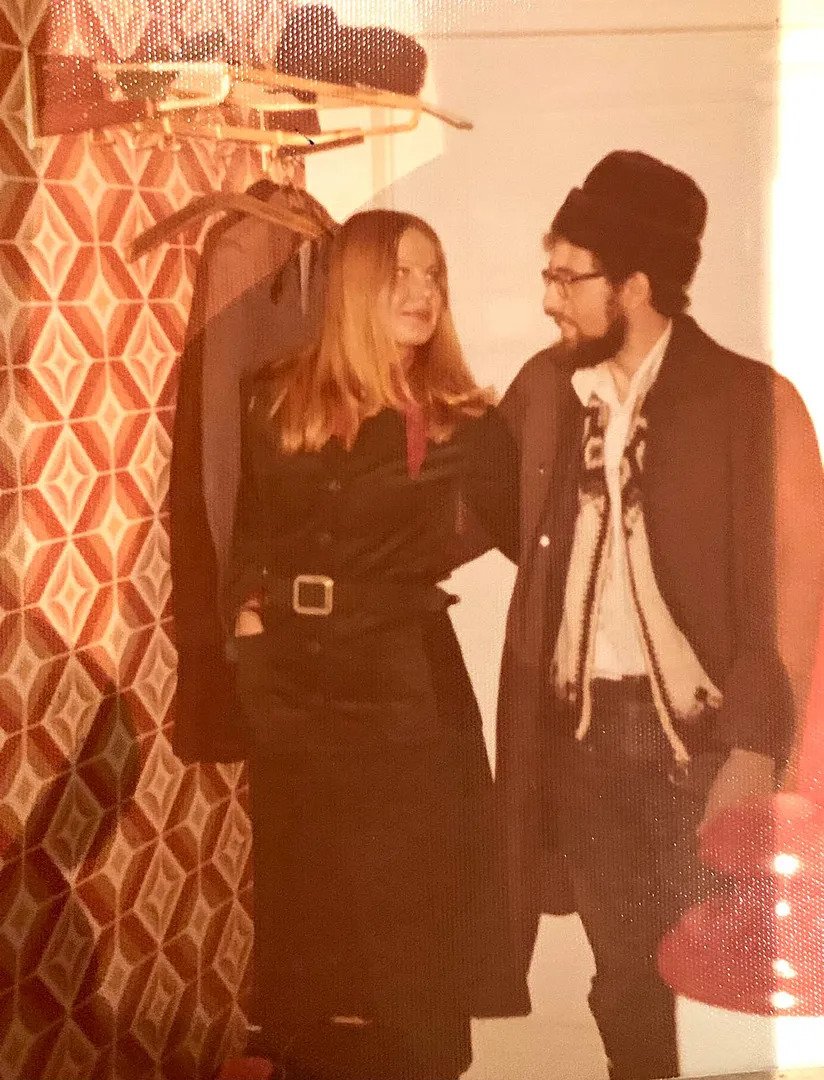
Was there a certain moment when you knew you wanted to become a musician?
Sure, just about the first time I banged on my mom’s piano and heard a sound come out!
Tell us about the Clockwork Orange. Were you in any other bands as well?
The aforementioned Clockwork Orange in Washington, and the University of Pennsylvania Balalaika Orchestra. I played a contrabass balalaika with them (ever seen a 5 foot tall balalaika?). It had a peg on one end of the triangle, strings made out of thick piano wire, and a “pick” made of two thick pieces of tough leather glued together that fit in the palm of my hand.
After school, I played guitar with my Dutch friends in the Holland-America-Line. We made two LPs, one called ‘Maiden Voyage,’ and the second, called ‘Cornbread, Kilts & Cossacks,’ which is an accurate rundown of the kind of music to be found on the album. Bluegrass, Appalachian, Scottish, Irish, and one Hungarian tune in 9/16 time. Probably just as well there was only one of those! The last tune on ‘Cornbread, Kilts & Cossacks’ was a master overdub of me and Hans Troost (the fiddler) playing about 15 different instruments to sound like a balalaika orchestra, with Giel, the banjo player, filling in on spoons. We all yelled HEY! at the end, recorded five times over to sound like the Red Army Chorus. Ah, the miracles of the studio.
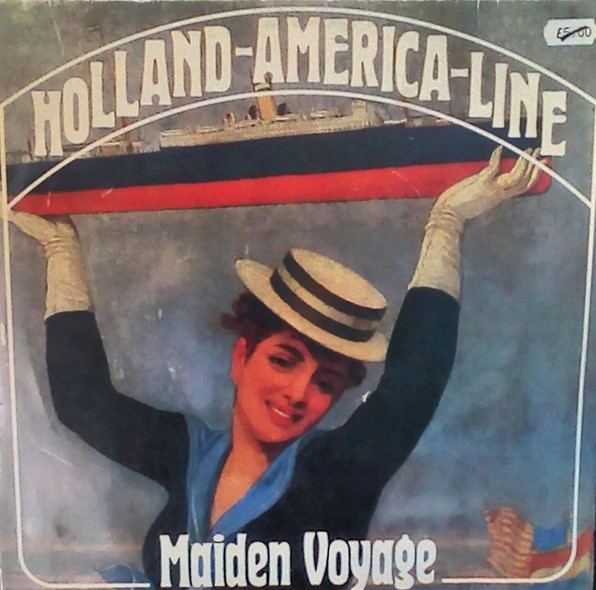
How would you describe the music scene where you lived? Were there any folk clubs et cetera?
“Where I lived” encompasses a LOT of places! In DC, there was the Cellar Door, where one could see Leo Kottke, Kris Kristoffersen (before his acting days), and the like. I went to boarding school in Massachusetts one year and met one young woman whose voice absolutely had me gaping, her singing was so beautiful. This was in early 1970. I asked her if she had any records out. She said, oh, no, she wasn’t anywhere near that stage yet. She had red hair, and her name was Bonnie Raitt. She got to “that stage” soon enough.
I never found the time to visit the famous folk clubs where I was going to school, unfortunately. Passim in Boston, the Main Point in Philadelphia, et cetera. I hate to think what I missed, but I’m sure it was a string of legends. Now that I live in Germany, a few folk clubs from the boom of the 1970s still run. Few acts from the States come, although Canadian guitarist Don Ross has performed at a club near me. Many German acts are still around, though most of the Scots and Irishmen I used to hang with drank themselves to death decades ago. I had a wonderful time in the seventies with a Scot named Hamish Imlach, Eric Bogle of “No Man’s Land” fame, and some of the Boys of the Lough.
What was the first song you ever composed?
Hell if I know!! Like Béla Fleck tells, inspirations come, and if you don’t write them down immediately, you forget them forever. I know I wrote a whole bunch of songs when I was in college in Philadelphia in the early seventies, and have vague recollections of them, but never wrote them down or recorded them. The first ones I actually remembered were instrumentals like ‘Sylvan Song’ and ‘Long Lost Salamander,’ the first one on the original pressing of ‘Listening Music / Anfang’. Others are on there, too, though far from all. I always fantasized about recalling the others, and doing an album called “songs of the seventies” or else “Philadelphia Story” since that is where most of them were composed. Now, I just turned seventy, myself, and still work full time. So I don’t know if I’ll ever get around to that.
When did you start working on ‘Listening Music / Anfang’?
The first piece I did was ‘Sylvan Song’ in the Spring of 1970. The rest just came to me. ‘Long Lost Salamander’ was the result of my first 12 string guitar and a decision that I HAD to learn to finger pick. I was horrified to hear the opening line of ‘Sylvan Song’ as the opening notes to ‘More Than A Feeling’ by Boston many years later. I have no idea if Tom Scholz ever heard my record, or if it was parallel evolution. The four vocals originally on there came from typical late teens-early twenties experiences most white middle class American guys go through. Meet and lose your girlfriend, get over it. Remember what she looked like “dressed in candlelight” as the song says. ‘Puttgarden’ was a fun thing made up because a French girlfriend who was trying to join me in Denmark was stopped at the German ferry station (Puttgarden) because she didn’t have enough money to enter Denmark (so said their border police at the time). So I made up a song about what a great place Puttgarden was not. I was never comfortable doing vocals.
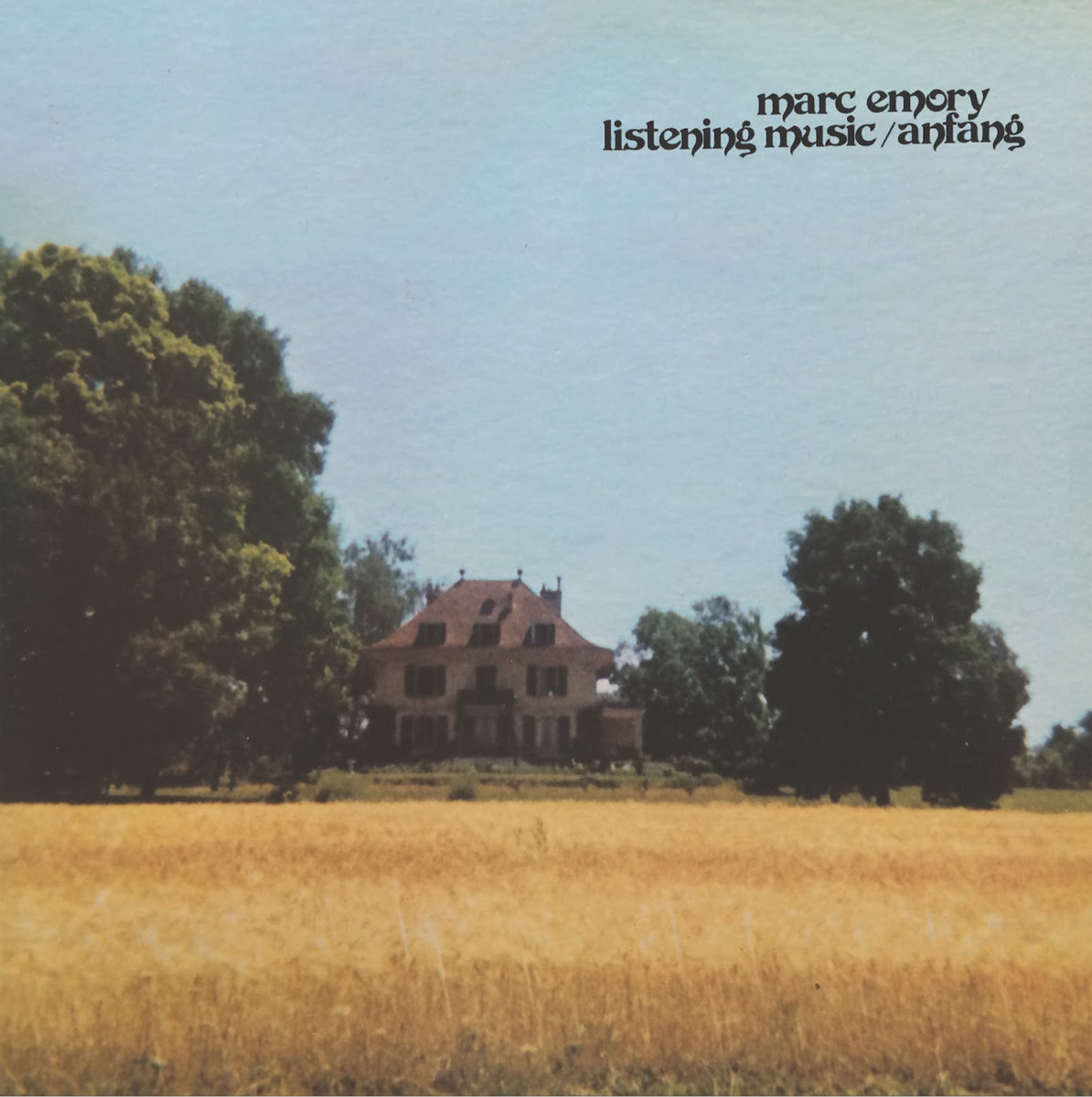
What are some of the strongest memories from recording and producing it?
Doing the vocal overdubs was a rewarding challenge, and getting the harmonics on ‘Chimes’ to work without a major error took immense concentration. It was the engineer who suggested the echo on the 12 string guitar on ‘Ekttok’ and ‘Sylvan Song’. I liked that. It was my first experience with a recording studio, and I made a mental note that there were always people out there who could make my own stuff better. Now, with my part-time transatlantic work with The Freedom Toast and The Parody Project, I see that things haven’t changed. On ‘Candlelight,’ it was my mom who suggested I go back to the studio and re-record/remix the vocals, which saved the piece.
The album was self-released, right? How many copies did you press and what can you say about “Elwich Music?”
I THINK I pressed 200 copies, but I couldn’t swear to it any more. “Elwich Music” was just a figment of my imagination. It was based on the name of my new (as of July 1974) German girlfriend, Elisabeth Wichmann. Elwich Music may have faded, but she did not. After 48 years, we are still together.
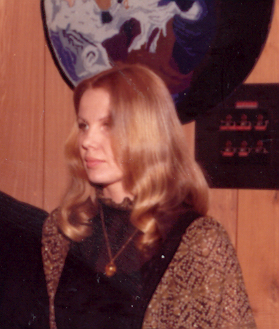
Would you share your insight on the album’s tracks?
Much of the instrumental numbers resulted from what English Folk singer Wally Whyton called “the musical equivalent of doodling.”
‘Long Lost Salamander’: I had always liked the Hugo Montenegro tracks to the first Spaghetti Westerns, especially The Good, the Bad, and the Ugly. This was just sort of my “western themed” doodle, hammered into a structured piece probably against its will. Decades later, I recorded it again with The Freedom Toast Band. The new version is called ‘Canyonlands,’ and can be found on the Freedom Toast’s Jango /Radio Airplay channel.
‘All Gaul’: Three doodles too short to exist on their own, thus welded together. As Julius Caesar said, All Gaul is divided into three parts. Thus: All Gaul.
Nice Day: My first “I met and lost my girl” song, composed in 1972/73. She was also the “Salamander.”
‘Ekttok’: “Kottke” spelled backwards. Backwards, because I had pretty much given up flatpicking by then. This was a holdover, enhanced by the engineer saying it would sound cool with an echo.
‘Slow Evening’: More doodling, but with some intentionally structured major-minor backwards and forwards.
‘Trepak’: Supposedly “Kapert” spelled backwards. I never verified this. Kapert is some mountain in Russia or the Caucasus somewhere. A friend from the balalaika orchestra and I used to do duo gigs for pocket money when I lived in Philadelphia, and he came to play the balalaika track. We even got to perform this in front of Gerry Ford and Nelson Rockefeller when they were President and Vice President in 1975!! I still say Gerry Ford, since my dad knew him (Great Lakes State, remember?) as Gerry from way back, when he was still “just” a congressman from Michigan. “Mr. President” took some getting used to.
‘Sylvan Song’: Chronologically the earliest piece. I had composed it as a background music track to a slide-tape of forest scenes by a guy from Colorado who was at my school in Massachusetts the one year I went to school there.
‘Waterfall’: More doodling. The name was inspired by the falling (and rising) of the introductory passage.
‘Candlelight’: Probably my most structured piece. The harmonies, the simple harmonics during the break, this one was put together with some care. I have often–well, to the extent that it has happened at all!–been told that this is almost everyone’s favorite piece on the album.
‘Chimes’: Inspired by church bells heard around Europe during my summer trips there. All harmonics, my only piece like that.
Was there a certain concept behind the album?
None whatsoever! I decided to finally blow some of my savings and see what I could do in a studio. Have something of myself for posterity, if you like. The album never went anywhere at the time, as I never had the time to try to promote it. You could have knocked me over with a feather when I discovered that FORTY years after recording it, people from out there in music land are hearing it, and liking it. One of those “what did I do right?” situations. I went in a different direction professionally, and I can’t say that I regret it. However, the late appreciation does bring a smile or two. Or a hundred.
What inspired the cover artwork?
I took my first solo European vacation when I was 18. Other than Aix-en-Provence, France and Barcelona, Spain, it was all new territory for me. My dad had a funny story about how he got taken in by a Swiss Family (Naef, not Robinson) after the war, waiting to be shipped home. He stayed friends with them, and wrote to them that I was coming through. They issued an immediate invitation to stay with them for a few days while in Geneva, Switzerland. I had no idea, but it turned out they had become immensely wealthy, and now lived in this stately villa outside town. It was modest enough from the outside, but surrounded by an immense wheat field that led down to the lake (and their sailing yacht!). I only had a $15 cheapo camera, but I took a picture of it from the back, near Lake Geneva, looking up at the house. That became my cover for the album. I didn’t have the money for a color back cover, such was my financial situation at the time!
Did you perform the songs live as well?
Never the vocals, and ‘Trepak’ only when David, the balalaika player was around. But I definitely did all the others (except ‘Chimes’) when I toured.
When did you move to Germany and why?
I started to spend a lot of time here in 1979. My German girlfriend had spent a “can we do this?” year in Boston with me in 1978, and said, OK, this works, but my parents have health issues, and I can’t live in America. If we are to stay together, you have to come to Germany. What was I supposed to say to that? Whatever options came to mind, “no” was NOT one of them. I was always on the road for work, anyway, so I wasn’t really living anywhere full time. She came with me to the USA often enough, too, for extended stays. My parents adored her. Well, pretty much everybody did, still does. Her smile can melt glaciers faster than global warming.
Luckily, the company I work for was always up for innovation, so when I suggested starting up a European office, they said, hey, if you can make it work, go for it. So, I made it work. We were maybe twelve guys when I joined them in 1975. Now, we are 550 people with offices all over the USA, as well as my thing in Germany, two in France, one in Switzerland, one in the Netherlands, one in Belgium, one in London and one in Hong Kong.
My wife’s mom is 95 and in poor health, so she won’t hear of leaving, and one of our daughters has since settled in Germany, so there is a branch of the immediate family here, too. Also, I have painted myself into a corner jobwise. Great pay, lots of vacation, but I can’t find anyone to take my place. Hey, if you know anyone who can detect counterfeit money going back centuries, can negotiate with Central Banks, and speaks German, Italian, Spanish, Catalan, Russian, Swedish, Dutch and French, and has an EU work permit, let me know, OK?
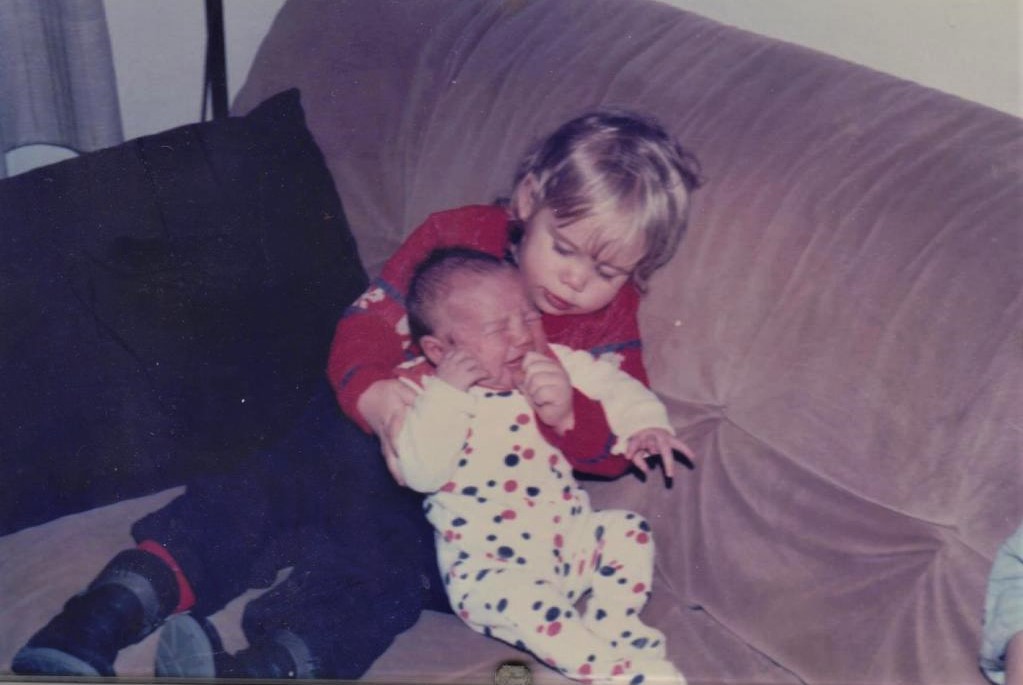
In 1977 you released your second album, ‘Where All Roads Lead’, what can you tell us about it?
It was at the insistence of a German folk promoter named Willy Schwenken. He was booking me into folk festivals and solo gigs all over Germany after “discovering” me at the one folk gig in Münster where I brought my guitar out of misunderstanding. He said I needed another album to sell at gigs. In other words, HE needed it. So, I booked a studio in Boston, and put together some stuff. More doodling, with a few Balkan numbers thrown in, played on a Croatian bisernica that I had bought while in Zagreb in 1973. I don’t think I have changed the strings on it since! A friend from Puerto Rico was visiting, so I let him sing a guest track (‘Contigo’). Another friend from my firm did a bass track or two. The German promoter had an excruciatingly awful cover made for it, and produced it himself. It can still be found in obscure shops in Germany, but you’d have to look hard.
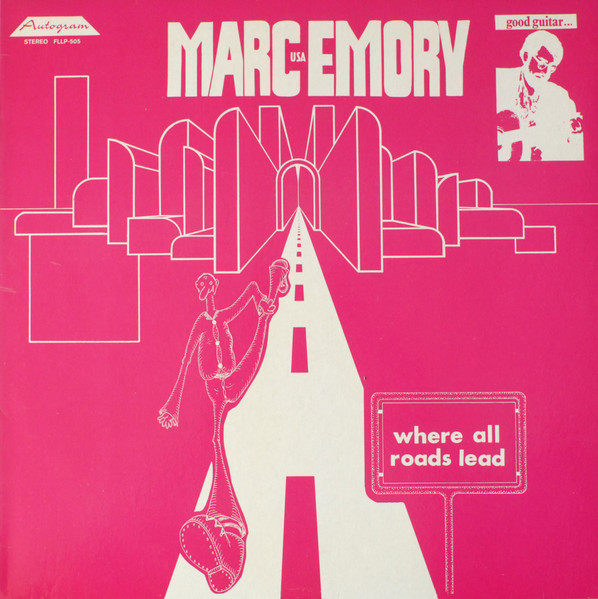
A German folk label released it. How many copies were pressed on Autogram and how did you get signed by them?
Autogram was the label of the Willy Schwenken, the German folk promoter. I paid for the recording in the States, and brought the tape over. He made the records and sold them. Welcome to the music business! I have no earthly clue how many copies he made.
Are there any more recordings left from that period?
I didn’t get into a studio between 1976 (where ‘All Roads Lead’) and 1982. That’s when I recorded ‘Maiden Voyage’ with the Holland-America-Line. It got some minor acclaim–VERY minor, I should point out–and was followed by ‘Cornbread, Kilts & Cossacks’ two years later. They were finished in 1983 and 1985, respectively. Silo-Alcazar in Vermont took up distribution in the USA, and we got some nice reviews, but by now, my day job was saying, whoa, are you in or out? Plus, our first daughter was born in 1983, so I had to go slow after that.
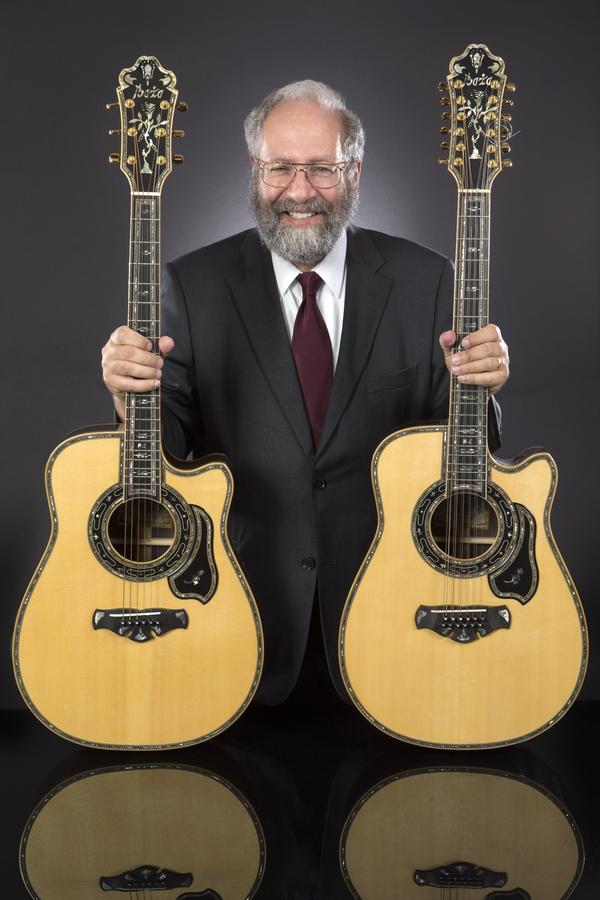
What happened next for you?
Two things: becoming a family man and my day job. Funny thing about when a fun job at 23 becomes a major “profession” ten years later. The Reagan recession almost destroyed us, and we had to do some creative survival thinking. Our main rival, down in Dallas, was going through the same thing, and the previous mortal enemies decided to join forces and try making a go of it that way. We did. Our new incarnation was born on January 1, 1983, and we never looked back. I still met frequently with the fiddle player from the Holland-America-Line, and played live on Cape Cod for fun during summer vacations, but that was about it. After attending the Renaissance Weekend gatherings in South Carolina over New Year’s starting in December, 2000, I met up with a professional pop pianist who made his money playing concerts on cruise ships for the blue-hair crowd. We got to doing parodies of well-known songs with new lyrics. Sort of Allan Sherman meets Tom Lehrer. This is what my dad used to do with the Gridiron Club in Washington, so I had learned at the feet of the master. Indeed, some of my new lyrics were so popular that some Gridiron Club members who were also attending Renaissance Weekend asked if they could use my lyrics for their shows. Remember, these shows are for the elite Washington Press, the President and Vice-President of the U.S., half the Senate, the House, and the Supreme Court! So I was thrilled that my stuff was getting to such a stellar audience, even if they had no idea it was me who was writing the material that was bringing them to their feet. (Andrew Lloyd Webber, eat your heart out!).
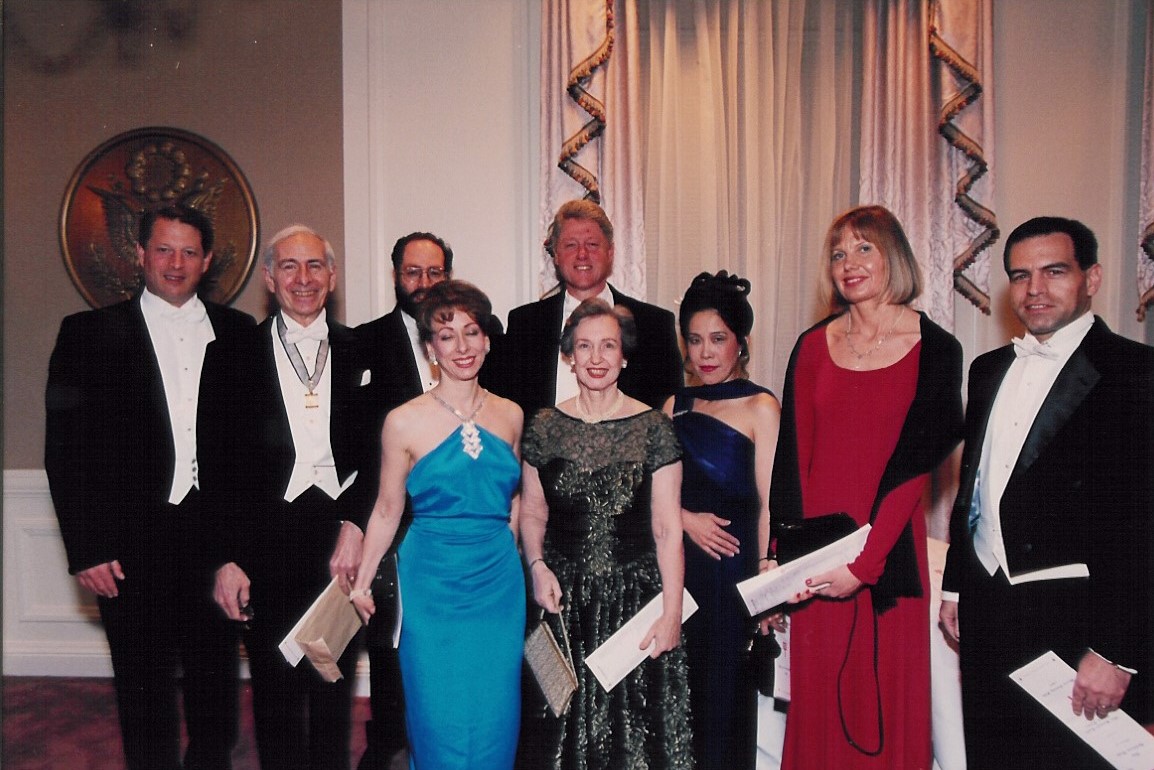
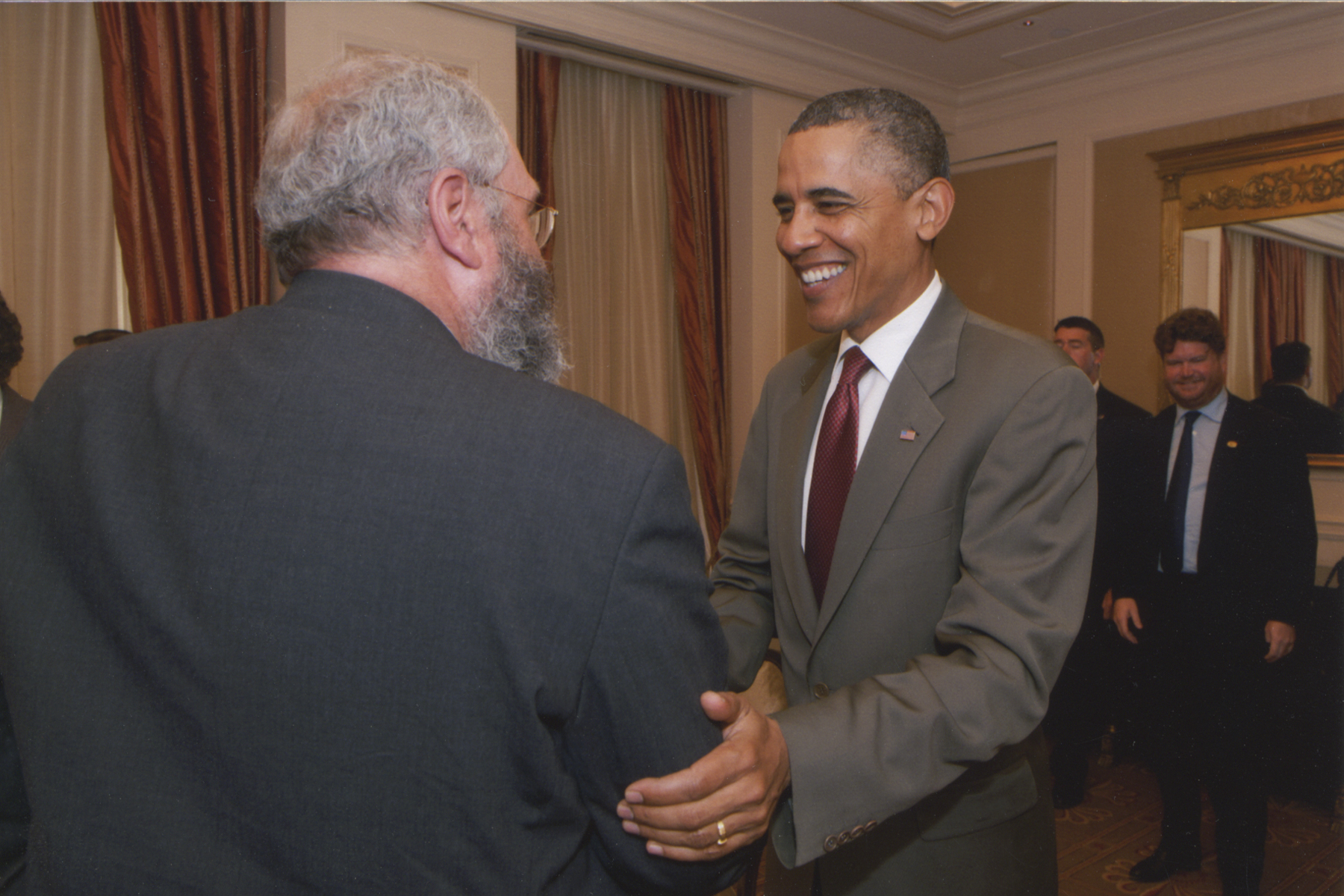
So, now, I just turned 70 this year, and see no use in retiring. To do what? Watch TV all day? My wife is a genetic marvel, still looks like a (barely!) former model, and our girls and their kids are doing fine. The political scene back in the States is so messed up, it keeps delivering plenty of material to satirize. Just look for any video on YouTube done by The Freedom Toast, either with our friends from the Parody Project, or, occasionally, on our own. I write the lyrics for anything that says “The Freedom Toast” except for three of them, which were written by my brother: ‘Dumb Down (Downtown),’ ‘Stand With Your Man (Stand By Your Man),’ ‘Special Master (I Feel Pretty),’ and the upcoming ‘Addicted to Trump (Addicted to Love)’. These are all strictly done for fun. I don’t have time to become another Capitol Steps.
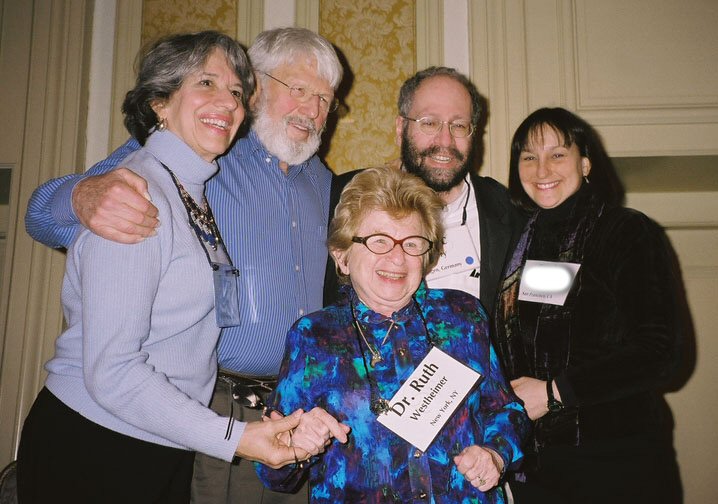
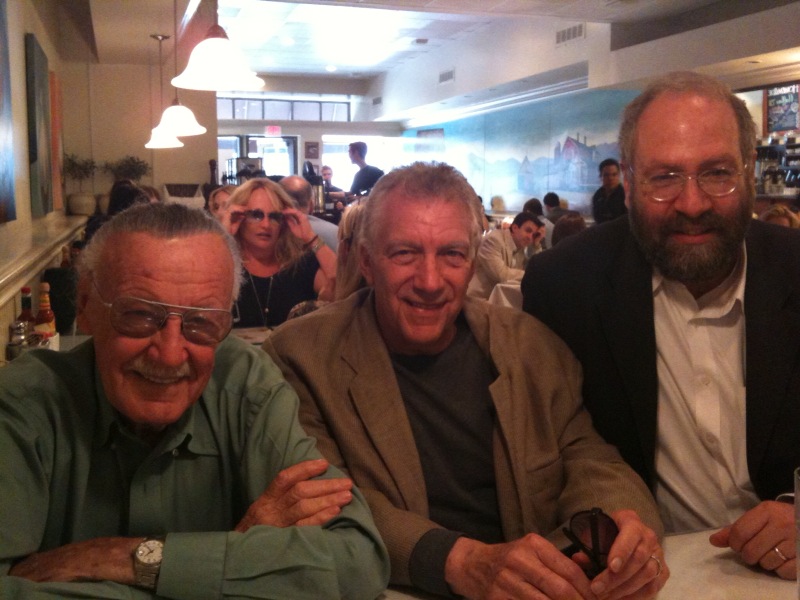
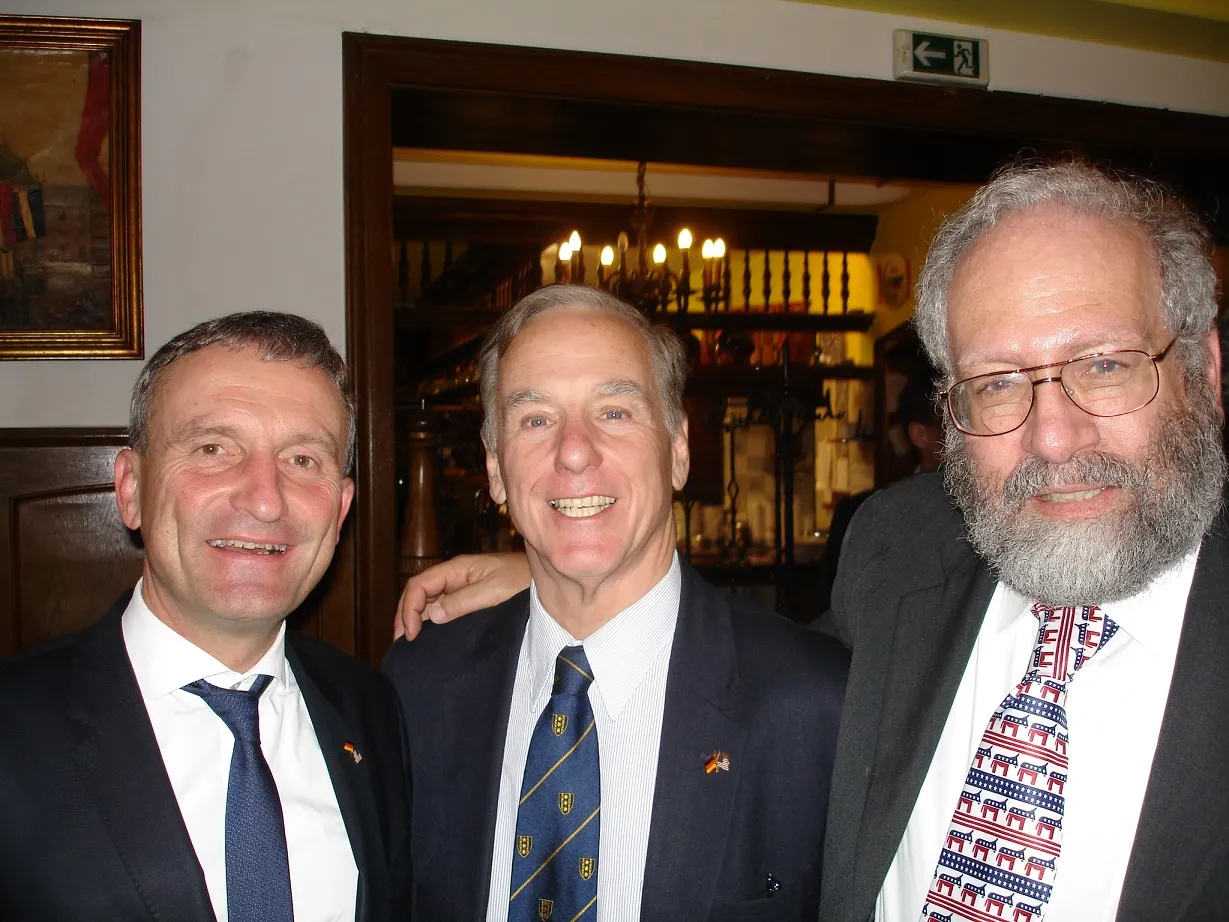
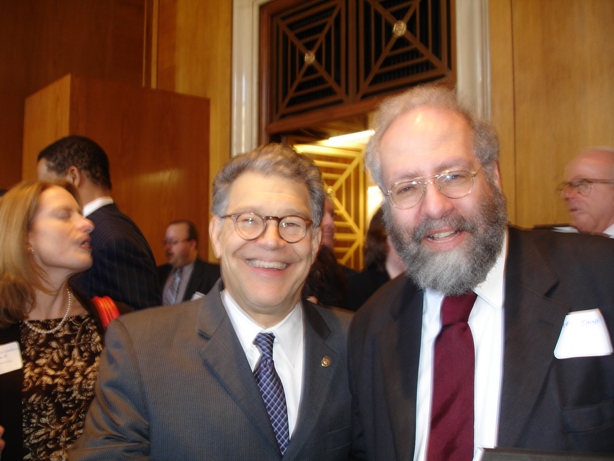
You’re still very active these days, traveling non-stop, what occupies your life?
My day job, going from country to country. HA.com is a big deal now, no longer a fun gig for 23 year olds. Plus, the many family visits. Our German-based daughter lives near Frankfurt and is one of Europe’s top corporate finance attorneys (basically, she makes sure they don’t get out of line when they do big deals). Her two daughters are fun to play with, though a handful if they get tired. We try to visit with our New York-based daughter when we can, too. We celebrated our 40th wedding anniversary and 70th birthdays in Hawaii in April on a trip paid for by our (apparently VERY) successful German-based daughter, who chewed me out for buying dinner one night. I write my parody songs, produce them from afar, and guide the videos until they are YouTube-ready. And every 30 or 40 days or so, I even get a day off. But what the hell, it beats dying of boredom. I might as well enjoy the show while it lasts, right?
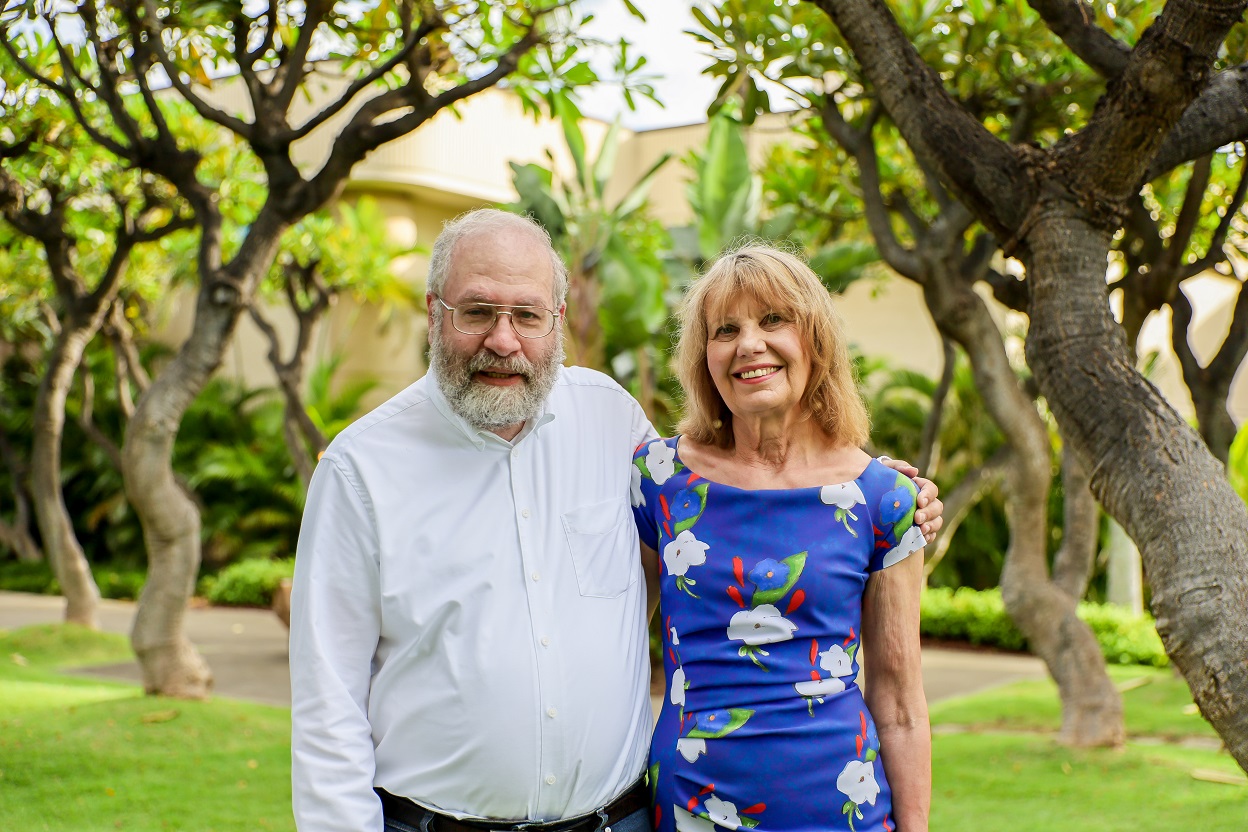
Thank you for taking your time. Last word is yours.
Last word. Funny you should say that. I had a cardiac scare back in 2004. At Renaissance Weekend, they always close with short speeches by various attendees at a panel addressing the whole gathering. It is called “if these were my last words.” On January 1, 2005, I talked about how various cultures used to say that it was OK to leave this life because something wonderful was waiting for you on the other side. I remarked that these were all only speculations, made by people who had no idea one way or the other. I remembered that Harry Truman used to quote a gravestone he had seen in Tombstone, Arizona. It said, “Here lies Jack Williams. He done his damnedest.” That’s kind of what I aspire to, and said so in closing. I got complimented on my speech by none other than Supreme Court Justice Stephen Breyer, so I guess I couldn’t have missed the mark by too far.
What IS important, after all? Family, fun, and, ALWAYS, music, without which life would not be worth living.
Klemen Breznikar
The Freedom Toast Facebook / YouTube
Scissor Tail Records Official Website / Facebook / Instagram / Twitter / Bandcamp / SoundCloud

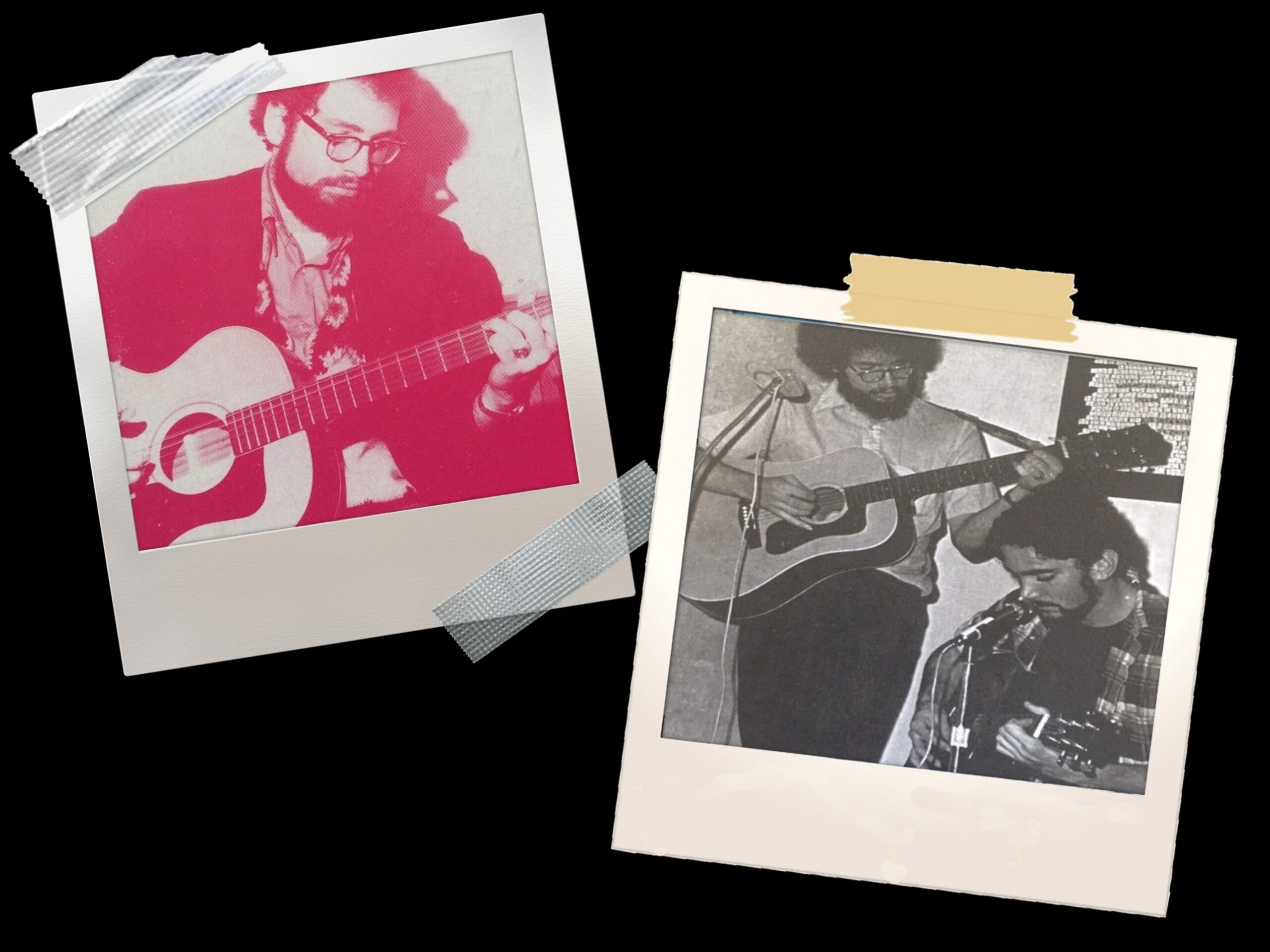



Thank you Klemen. Never heard before.